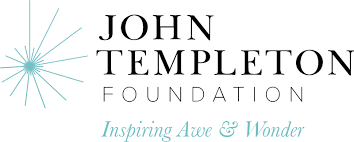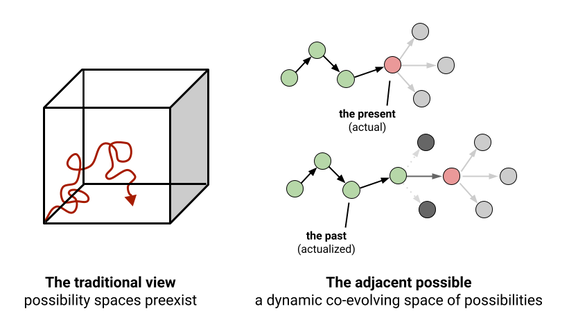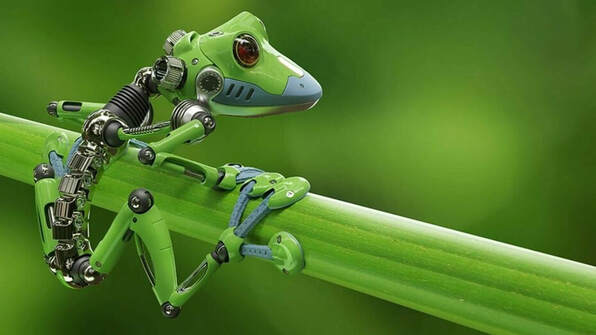|
I bear good tidings! After seven long years in the funding desert, I have secured a major research grant again. And even better: it makes no compromises. This project supports everything I want to do most at this point in my life. I'm still a bit in shock that I actually have this unique opportunity to pursue a whole range of rather radical philosophical, scientific, and artistic projects with financial security for the next three years. Lucky me. In fact, I had more or less decided to never apply for a research grant again, to try and make a life as a freelance teacher and philosopher, when this opportunity came along. And since I considered it my last shot, I wrote it without consideration whether it would actually get funded or not. But then, lo and behold, it did! I'm tremendously happy and excited to be focusing full time on research (and a bit of art) again. The title of the project is "Pushing the Boundaries: Agency, Evolution, and the Dynamic Emergence of Expanding Possibilities." It will be hosted by my wonderful project co-leader and collaborator Prof. Tarja Knuuttila at the Department of Philosophy of the University of Vienna, and will involve numerous collaborations with many of my favorite philosophers, scientists, and artists. But more on that later. FIRST: A WORD ABOUT THE FUNDER The project is funded by the John Templeton Foundation. So let's get a few things out of the way right at the beginning: I am very well aware that many of you have reservations about the Foundation as a funder, especially in the field of evolutionary biology, due to the controversial views of its founder, John Templeton. I want to make a few points very clear: I am a staunch and outspoken atheist (I've tried agnosticism for a while, but couldn't emotionally commit to it), I have no sympathies for the view that science and religion are non-overlapping magisteria (most traditional religious dogma is simply outdated and incompatible with a modern scientific worldview, and I want my metaphysics to always be in tune with the best scientific evidence we have available; more on that here), and I do not believe for a second that our knowledge of evolution leaves room for any kind of supernatural or directed influence (there is a lot we don't understand about the world, but God is never a valid explanation for any of that). Having said that, here are three reasons why I can take money from Templeton and still sleep tight at night. First, the Foundation had absolutely no influence on the content of the project. Nor did they ever try to exert such influence at any point of the application and selection process. Quite the contrary: in stark contrast to the public funding bodies I have had to deal with, they were extremely constructive, letting me reply to reviewers' comments, moderating differences of opinion that were not constructive, and generally helping me to improve the format of the project to fit the requirements and preferences of the Foundation. My experience with Templeton at this level has been 100% positive so far. Second, I've been trying to get my research into organismic agency funded by public funders for years now, without the slightest chance of success. The project is heavily transdisciplinary, trying to redefine how scientists see evolving spaces of the possible, expanding our view of what is a valid scientific explanation beyond strict mechanicism (yet still rigorous and naturalistic), challenging our mechanistic view of organismic behavior and biological evolution, while attempting the impossible task of simulating a whole cell or organism (see below). No panel at any funding body other than Templeton was open minded enough or could muster the transdisciplinary expertise to judge such a project properly and fairly. Also: gatekeepers will be gatekeeping, especially in committees set up by public funders. Templeton offers me a unique opportunity to escape these problematic institutional constraints. Whatever their motives to do this, this project is almost sure to drastically reduce the space for supernatural mysticism in biology rather than justify it in any way. Last but not least, those that receive funding from government agencies or their university would do well to question the motives of those institutions as well. Are the interests and incentives defined by these funders still aligned with the process of doing basic research — with the intrepid exploration of the unknown? I do not think so. The current public funding system is severely broken, with an excessive focus on politically useful short-term outcomes and practical applications (not even mentioning committee cronyism to only fund more of the same). It is going exclusively for the low-hanging fruit. It has become so focused on consensus decision making and reachable objectives that it makes true conceptual innovation all but impossible. I don't want to be part of that system if it cannot give me the freedom to explore. To be honest, I'm much better off with Templeton in that regard. Maybe this is a problem the decision-makers in public funding bodies should more seriously consider? Creativity and innovation are dying in a scientific research system designed for the age of selfies. OK, I GET IT. BUT WHAT IS THE PROJECT ABOUT? In the broadest sense, the project deals with the fact that our modern science, just like our modern worldview, are largely mechanistic. In other words, we see nature as a kind of machine (a “clockwork,” or nowadays maybe more like some sort of computer simulation or computation) that we can emulate, control, predict, and exploit. This view of the world as a machine has led to much empirical success in the natural sciences over the past few centuries, but also restricts the kind of questions we can scientifically address, and it underlies many of humanity’s most existential and pressing challenges today: the interlocking ecological, socioeconomic, political, and meaning crises that form our current meta-crisis. In my opinion, these crises are ultimately all rooted in a fundamental philosophical misunderstanding concerning the nature of the world and our role and place within it. In this project, we pursue the idea of a different kind of science for the 21st century, focused on organismic agency and its role in evolution. It does not view the world as a mechanism, but as a creative process of open-ended evolution. The main focus of our investigation lies on the simple question “how do organisms manage to act on their own behalf?” This, in fact, is what most clearly delineates the living world from the non-living. Unfortunately, the concept of “agency” — the ability of a living organism to act — is still heavily understudied in contemporary biology, probably because it is strongly associated with teleology, a kind of purposeful explanation that is shunned in mechanistic science. Our project aims to address this fundamental issue by providing a philosophical and scientific analysis of organismic agency, which shows that it is fully compatible with the epistemological principles of naturalistic explanation in science. Moreover, we are interested in learning how (or how far) we can capture the organism's ability to act in mathematical models of living cells and organisms, since we do not yet have such models in biology. Indeed, this kind of model may require entirely new kinds of computational and mathematical methods that we have barely begun to explore (see here, for an exceptional example of such an exploration). In our project, we intend to push the boundaries of what we can model and predict in systems that are (or that contain) organismic agents. Such systems not only include populations of evolving organisms, but also higher-level ecosystems (up to the level of the biosphere), and social systems, including the economy. We take a three-pronged approach to study such agential systems. Part 1: The evolutionary emergence of expanding possibility spaces First, we use philosophical analysis to clarify what some of the concepts we use actually mean. Many of these concepts remain vague and ill-defined, their interrelations unclear. In particular, a theory of agency requires us not only to know what it means for an organism to “act on its own behalf,” but also to understand problems such as the emergence of new behavior and new levels of organization in evolution, what makes such novel levels and behavior particularly complex and unpredictable (as opposed to, say, the behavior of a rock), and to explain how such new levels of organization can evolve with a degree of independence from the underlying molecular and genetic mechanisms. The problem with classical dynamical systems approaches to systems biology is that they are historically imported from physics, especially from an approach Lee Smolin has called "physics in a box" where we define a system over a specific domain of reality that contains a given number of interacting objects (encoded by the state variables of the system). The behavior of these objects is then described by a set of rules which are defined outside the objects themselves (the laws of gravity for a classical model of the solar system, for example). Given a specific set of starting and boundary conditions, we can then simulate the temporal evolution of the system within its given frame, by tracing a trajectory through a predefined space of possibilities (the configuration space of the model; see figure below, left). Unfortunately, this approach is fundamentally ill-suited for modeling evolving systems of interacting agents. The main reason is that agents are not objects, and the rules of their behavior is defined from within their peculiar organization. As I have said above: agents act on their own behalf. They write their own rules and those rules constantly evolve in response to the behavior of the agents itself (among other things, such as environmental triggers, of course). Thus, what we get here is a constantly changing space of possibilities that radically co-emerges with the dynamics of the agential system itself. Stuart Kauffman has called this emergent space of possibilities the adjacent possible (see figure above, right). The first part of our project is an attempt to philosophically (re)define concepts such as emergence, complexity, and agency to ground such a view in evolutionary theory and biological research practice. To summarize: in this philosophical part of the project, we push the conceptual boundaries that hinder our understanding of purposive agency and its role in open-ended evolution. To put it in more technical terms: we aim to establish suitable theoretical frameworks that bring together notions such as purposive organismic agency, the complex biological organization that enables it, the radically emergent dynamics underlying its evolution, and the impredicative nature of the resulting dialectic dynamics, i.e., the co-constructive interplay between affordances, goals and actions that produce the behavior and evolution of biological and human agents. These diverse, foundational, and so far massively understudied, aspects of agential evolution will be integrated through the central notion of dynamically growing possibility spaces, constantly driven into the adjacent possible by the intrinsic behavior of agents. Part 2: Modeling the impossible — simulating a living agent In the second part of the project, we take a more practical and less abstract approach. Informed by the philosophical investigations outlined above, we will create a mathematical and computational framework (a bit like a new programming language) that allows us to capture organismic agency in simulations of simple unicellular organisms that behave and evolve. Many efforts have been made to come up with such frameworks in the past. Here, we will use a number of new ideas to extend these existing efforts. In particular, we are interested in capturing the self-maintaining organization of an organism, and the way it generates actions. In addition, we will focus on the role that randomness plays in this process, and how we can generate reliable behavior in light of the many fluctuations within an organism and in the environment it encounters. Our starting point for these efforts will be a highly abstract minimal model of a cellular agent created by Jannie Hofmeyr, based on Robert Rosen's pioneering work on the organization of organisms. In other words, we intend to push the methodological boundaries that limit our ability to model agential dynamics. Today’s most advanced agent-based models and machine-learning methods still depend on externally prescribed goals/targets. A genuine model of agential evolution requires a new modeling paradigm, where evolving agents write their own rules, evolve their own codes, generate and transcend their own boundaries, and choose their own goals. Whether and how this could be achieved remains an open question, not only in biology, but also in social systems, AI, and ALife research. In fact, some theoreticians (including myself) have predicted that this is not entirely possible. By trying anyway, we can find out (a) how far we can get with dynamical model/simulations and which parts of an organism’s organization and behavior such models can capture, and (b) we can strive to better understand and circumscribe the limits of predictability in such systems. In this sense, failing in our task to come up with a perfect model of a living organism may teach us more about life than being successful. Whatever we will encounter on our journey, we are sure to learn something new. Part 3: Why organisms aren't machines As a final part of the project, we intend to bring the discussion of agency and the possibility of a post-mechanistic science to other scientists and the general public, because we believe that a transition towards a more participatory and sustainable view of the world is essential for human survival on the planet. An expanded scientific view of the world as an evolving open-ended process has profound implications. It requires us to accept certain types of teleological explanations (those concerning the goal-oriented behavior of organisms) as perfectly naturalistic and rigorously scientific ways of understanding the world. This greatly expands the range of questions that scientific research can address. It increases our explanatory power compared to a purely mechanistic approach. In the domain of ethics, we can no longer treat and exploit living beings as if they were machines. Even more broadly, we have to give up our Laplacean dreams of control and predictability. We have to learn how to go with the flow, rather than attempting to constantly master and channel it. We have to realize that the future is fundamentally open. This can be scary, but also liberating. We are responsible for our own actions and their consequences. The evolutionary view of the world is empowering. Here, we push the boundaries of public and scientific awareness concerning purposive agency and open-ended evolution. The massive challenges we seek to address require a community-sized effort, positioned at the heart of 21st-century science, as well as a new post-mechanistic view of what science can be. Unfortunately, very few researchers, and even fewer members of the public, currently realize the scope and implications of this problem. We aim to raise awareness through dissemination: a book written for a general readership about why organisms are not machines, and an innovative outreach strategy led by a professional curator, Basak Senova, implemented through my existing arts & science collaboration THE ZoNE, which presents our views on agency and evolution and their scientific and societal ramifications in a serious but playful format called wissenskunst that is accessible and (hopefully) attractive to a broad general public. SOME CONCLUDING PRACTICALITIES This is it for this first quick overview. I'll write more about how things are going over the next few months. As I mentioned, the project will be hosted at the Department of Philosophy of University of Vienna. It will start in December 2022, and will run for a duration of 33 months. It includes two workshops and a larger conference on the topic of agency and evolution, so keep an eye out for announcements. I am particularly proud that this project is not part of Templeton's huge concerted effort to study agency, called "Agency, Directionality, and Function" (website). We very much hope to be constructively synergizing with parts of that larger project, but I see our approach as complementary and orthogonal to their efforts. And most importantly: we remain independent agents! It would be ironic were it otherwise. You can contact me here, if you want to know more about the project.
2 Comments
12/7/2024 03:58:28
What is the main analogy drawn between the framework being developed and a programming language?
Reply
Leave a Reply. |
Johannes Jäger
Life beyond dogma! Archives
May 2024
Categories
All
|



 RSS Feed
RSS Feed